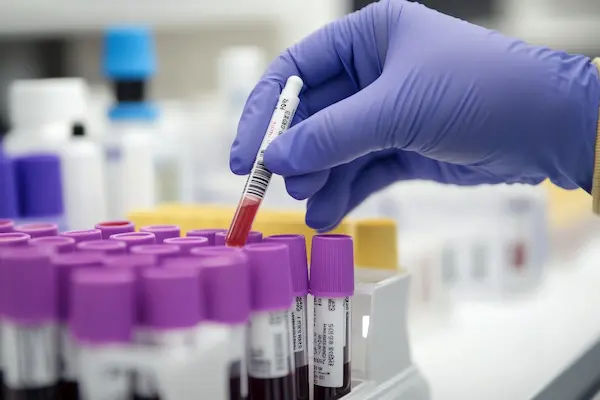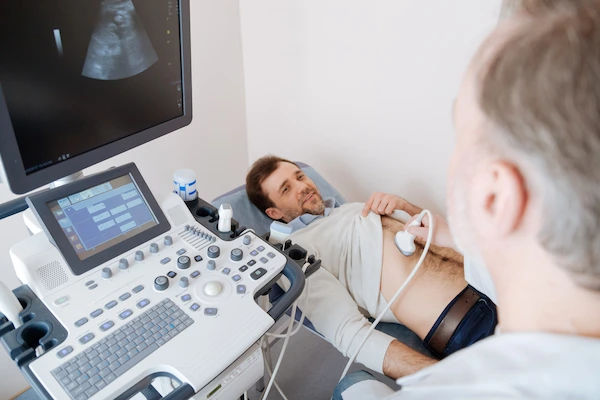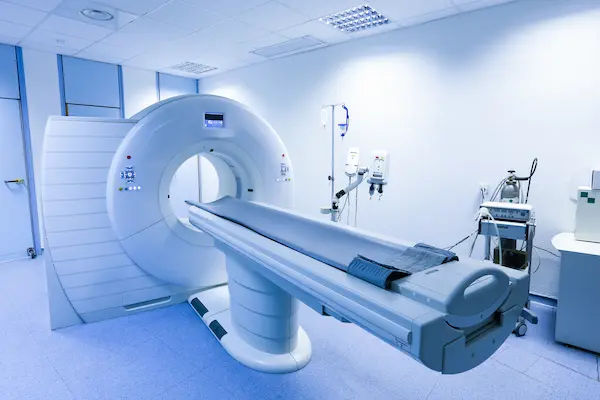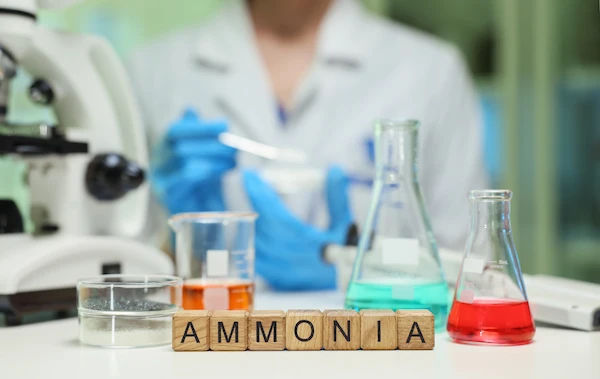Burning Sensation While Urinating? Test for UTI Early: A Complete Guide for Women and the Elderly
Experiencing a burning sensation when urinating? Don't wait! Learn why early UTI testing is crucial for women and the elderly, understand the symptoms, and discover effective prevention and treatment strategies in this comprehensive guide.


Burning or stinging during urination is not just uncomfortable. It can also be a sign of an underlying infection that needs urgent attention. Among the most common culprits is a Urinary Tract Infection (UTI). Though UTIs can affect anyone, women and elderly individuals are particularly vulnerable due to anatomical and age-related factors. Ignoring the symptoms can lead to complications such as kidney infections or recurrent bladder issues. Fortunately, modern diagnostics now allow for early detection of UTI with a simple urine test, and even better, a combined test panel can reveal more, such as elevated sugar levels (diabetes as a risk factor) and blood cell counts (inflammation or systemic infection).
This guide will walk you through everything you need to know about getting tested for a UTI, with a special focus on urine culture test packages that include urine routine, sugar, and CBC, a uniquely effective trio for early detection and treatment guidance.
Why Does It Burn When You Urinate?
The burning sensation during urination, medically known as dysuria, is a classic symptom of a urinary tract infection. It may also be accompanied by:
- A frequent urge to urinate
- Cloudy or foul-smelling urine
- Pain in the lower abdomen
- Mild fever or chills
- Traces of blood in the urine (haematuria)
If left untreated, the infection can spread to the kidneys or recur frequently, leading to long-term health issues. This is especially concerning in elderly individuals, where symptoms may be vague or atypical, and in women, whose shorter urethra increases the risk of bacterial infections.
Why Are UTI Tests Essential for Women and the Elderly?
UTIs are among the most common infections in women, especially during pregnancy, menopause, or post-menopause. In the elderly, UTIs may go unnoticed until they cause serious complications such as confusion, weakness, or fever. A UTI test, particularly one that includes a urine culture, sugar levels, and CBC (Complete Blood Count), can offer early insights into:
- The presence and type of infection
- Whether high sugar levels (a risk factor for UTIs) are contributing
- Inflammatory markers that point to the extent of infection
Testing helps avoid unnecessary antibiotics, ensures proper treatment, and prevents complications.
Common Tests for Diagnosing UTI
When you visit a clinic or book a home test, your doctor may recommend the following:
1. Urine Routine Examination
A basic test to evaluate several parameters in the urine, such as:
- Pus cells (white blood cells): indicate infection
- Red blood cells: suggest inflammation or trauma
- Nitrites and leukocyte esterase: markers for bacterial UTI
Ideal for: Initial screening in symptomatic individuals
Turnaround time: 2 to 4 hours
2. Urine Culture Test
This is the gold standard for UTI diagnosis. It identifies the exact bacteria causing the infection and checks antibiotic sensitivity to guide treatment.
Why it matters: Pinpoints the causative agent and avoids overuse of antibiotics
Ideal for: Recurrent UTIs or moderate to severe symptoms
Turnaround time: 48 to 72 hours
3. Blood Sugar (Fasting or Random)
High blood sugar levels can promote bacterial growth in the urinary tract and increase UTI risk.
Why it matters: Detects undiagnosed or uncontrolled diabetes
Ideal for: Elderly individuals or those with a history of diabetes
Turnaround time: Same day (within 2 to 4 hours)
4. CBC (Complete Blood Count)
Assesses white and red blood cell levels, as well as platelets.
Why it matters: Elevated WBCs suggest systemic infection or inflammation
Ideal for: Women with fever, chills, or body pain alongside burning urination
Turnaround time: Same day results.
Get Your Health Assessed Here
Combo Panel: The Most Effective UTI Diagnostic Package
Instead of getting separate tests, choosing a combined UTI panel makes diagnosis quicker, more cost-effective, and comprehensive.
One of the best combinations available for detecting UTIs is:
- Urine Culture + Routine Urine Test + Blood Sugar + CBC
- Detects infection
- Evaluates sugar as a risk factor
- Reveals severity via inflammation markers
Recommended Test Packages from Apollo 24|7
Apollo offers convenient lab test options for UTI diagnosis. Choose from the following:
1. Urine Culture Test
- Detects specific bacteria causing UTI
- Identifies antibiotic resistance
Turnaround time: 48 to 72 hours
2. Urine Routine Examination
- Screens for pus cells, proteins, pH, and ketones
- First-line test for any urinary issue
Turnaround time: 2 to 4 hours
3. Complete Blood Count (CBC)
- Helps determine infection intensity
- Checks for low or high white blood cells
Turnaround time: 3 to 4 hours
4. Fasting Blood Sugar or Random Blood Sugar Test
Reveals diabetes or pre-diabetes
Turnaround time: 2 to 3 hours
Or book a custom package from Apollo's Top Booked Tests for added convenience.
When Should You Get Tested for UTI?
You should consider a UTI test immediately if you notice:
- Burning, pain, or discomfort during urination
- Frequent or urgent need to urinate, even with little urine output
- Fever, chills, or flank pain (suggesting kidney involvement)
- Blood-tinged or foul-smelling urine
In women, vaginal discomfort may sometimes overlap with UTI symptoms, so testing helps confirm the diagnosis.
In the elderly, confusion or fatigue may be the only sign of a urinary infection.
Who Should Prioritise UTI Testing?
Urinary tract infections (UTIs) can affect anyone, but some individuals are more prone to recurrent or severe cases. Identifying who should prioritise UTI testing can lead to quicker treatment and prevent complications. Here's who should consider getting tested:
1. Elderly Individuals:
- Weakened immune systems
- Use of catheters or incontinence products
- Poor hydration and hygiene
- Higher risk of kidney infections
2. Women of All Ages:
- Shorter urethra, making bacterial entry easier
- Increased risk during pregnancy, menopause, and sexual activity
- History of recurrent UTIs
3. People with Diabetes:
- Sugar in the urine supports bacterial growth
- Poor circulation weakens infection response
How to Prepare for a UTI Test?
Preparing properly for a UTI test helps ensure accurate results and a smoother diagnostic process. A few simple steps, like hygiene and timing, can make a big difference. Here’s how to get ready for your urine test:
- No fasting required for routine or culture urine tests
- Midstream urine sample is ideal, clean the area first and collect the middle portion of the urine stream
- Inform your doctor about any current antibiotics or medications
- Hydrate well before giving a sample, unless advised otherwise
For combo panels including fasting blood sugar, do not eat or drink (except water) for 8–10 hours before the test.
What Do the Test Results Mean?
Here’s a simplified guide to interpreting the key UTI-related tests:
Note: Always consult your doctor before starting treatment based on test results. Self-medication can lead to antibiotic resistance or worsening infection.
What Should You Do After Receiving the Test Results?
Once your test results are in:
Consult your doctor to understand the findings and begin the right treatment.
- Start antibiotics only if recommended, based on culture sensitivity.
- Complete the full antibiotic course even if symptoms subside early.
- Drink plenty of water and urinate frequently to flush out bacteria.
- Monitor symptoms, especially in elderly patients or those with diabetes.
If your results show elevated blood sugar, speak with your doctor about lifestyle changes or medication to control it.
Conclusion
A burning sensation during urination might seem minor but could be your body’s way of signalling a deeper problem. Prompt testing, especially with a combo panel of urine culture, sugar, and CBC, ensures accurate diagnosis and avoids unnecessary antibiotic use. For women and the elderly, early detection is key to avoiding complications like kidney infections, sepsis, or frequent relapses. With trusted labs like Apollo 24|7, you can easily book UTI test packages online and even get samples collected from your home. Don’t ignore your symptoms, test early and treat right.







